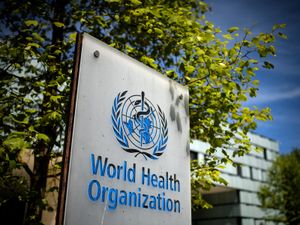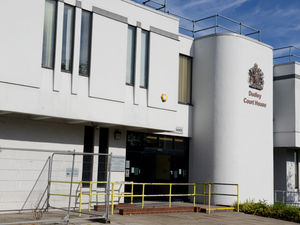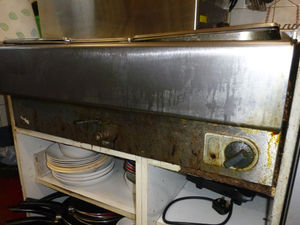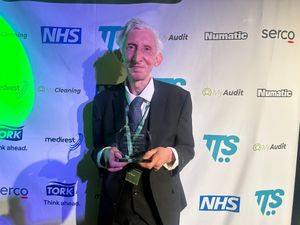'We fell short over care' says Walsall Manor after man's tragic death
Bosses apologise for the care of Mark Ankrett, who died aged 24 after suffering from a bleed on the brain and epilepsy.
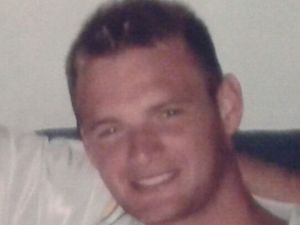
Walsall Manor Hospital bosses have apologised for their care of a 24-year-old man who died nearly four years ago after suffering from a bleed on the brain and epilepsy.
An independent investigation has concluded there were several failings surrounding the case of Mark Ankrett, including ‘poor’ record keeping, communication and ‘gaps’ in follow-up reviews.
However the probe into his care at the Manor found none of the shortcomings contributed to his death. The aspiring builder from Bloxwich, who had been studying at South Staffordshire College, died in November 2013.
Now, an independent review into his care – the third probe into his death – has been completed by London-based Verita and published.
The Walsall trust said: “The trust would like to take this opportunity to apologise for the areas where we fell short of our expected standards of care.”
But Mr Ankrett’s family maintain his condition was not monitored properly in the years leading up to his death whilst claiming the hospital have blamed his decline on his drinking when he finally hit rock bottom a year before he died.

Speaking to the Express & Star his mother Tracey Ankrett, aged 52, said: “We can’t believe that they have chosen to ignore the things we have raised. There has never been any moving on. Mark has continued to be a part of our every day life it doesn’t matter what we are doing.
“We have to remember he is not here. It has been difficult to accept. But when you have to fight for the truth like we have it makes it unbearable.”
Mr Ankrett come under the care of the neurological team at Walsall Healthcare NHS Trust as well as the neurovascular and neurosurgical teams at University Hospitals Birmingham NHS Foundation Trust – the Queen Elizabeth Hospital (QE) – in 2007 after he suffered an epileptic seizure.
It was discovered he had a large 5cm arteriovenous malformation (AVM) in the brain – a tangle of blood vessels which increases the risk of stroke or haemorrhage.
In 2008 he underwent embolisation – a procedure to fill abnormal connections between vessels – which reduced the blood flow slightly to his AVM but a second attempt in 2009 had to be abandoned as it was felt it may cause a stroke.
According to the investigation Mr Ankrett became depressed and began drinking heavily in late 2012 as a coping mechanism increasing the frequency of his seizures.
He was then referred to mental health services when police found him walking alongside a railway line.
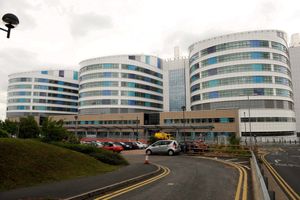
In January 2013 a scan revealed an AVM-related heamorrhage and a few months later doctors attempted the same procedure as he had received in 2008 but it failed due to the narrowing of an artery.
On November 22 that year he sustained another haemorrhage and died within 24 hours on a palliative care ward at the Manor hospital when it was determined there was nothing more which could be done.
But the 100-plus page document identified numerous shortcomings.
It stated the Manor lacked ‘integrated care plans’ for patients who attended A&E regularly in response to Mrs Ankrett’s concerns her son’s underlying medical condition went largely unrecognised despite the fact he went to A&E 18 times between April 2012 and November 2013 with alcohol related issues.
The investigation also found that through no fault of his own Mr Ankrett missed an appointment in December 2011 after not receiving a letter.
As a result he went a year without seeing a specialist nurse and nearly two years without seeing his consultant neurologist Dr David Francis.
Verita stated this would have been ‘distressing’.
Additionally they noted Dr Francis and the specialised nurse were guilty of ‘poor practice’ for not keeping up-to-date records when reviewing him.
While it was found communication between the Walsall Manor and the QE was lacking.
The report also said when nothing more could be done for him the way the news was communicated to the family ‘fell below’ the required standards.
But ultimately Verita concluded: “Mark’s death was tragic, However, he died because of his medical condition rather than any failings in his care he was given.
"We found the trust could have done better in some areas but we conclude none of the shortcomings contributed to or caused his death. The care and treatment Mark received were clinically appropriate.”

